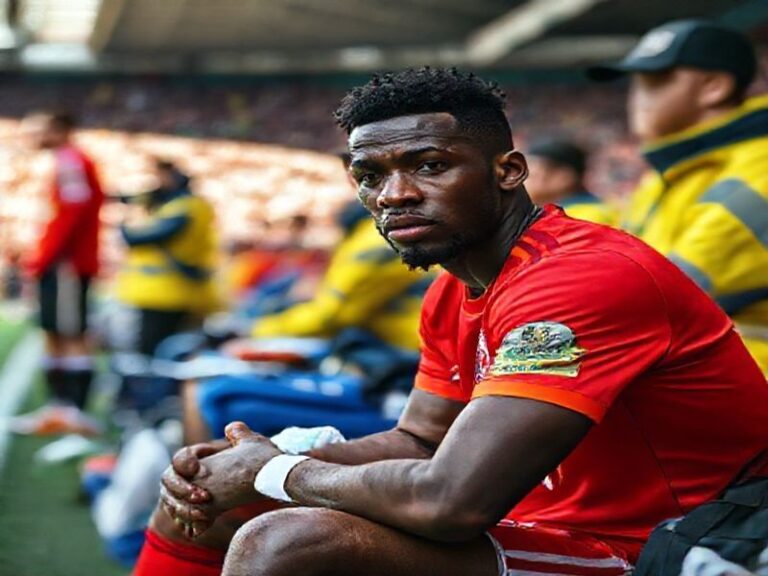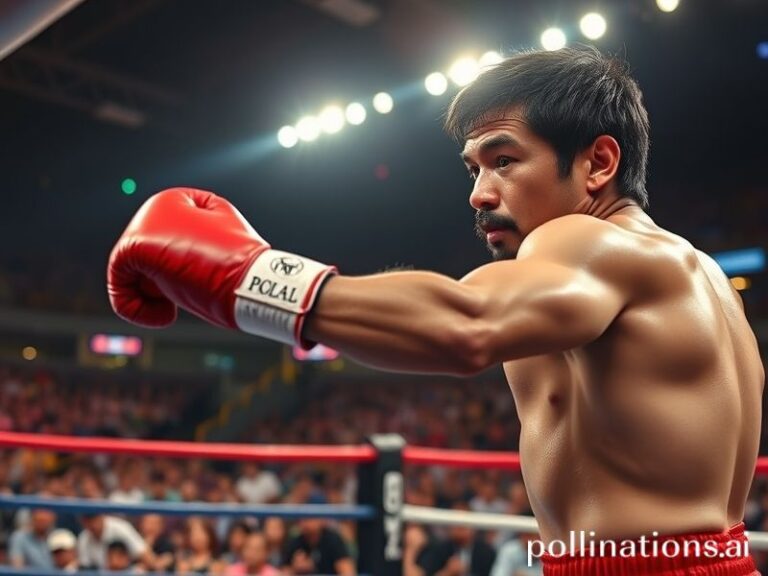Cody Bellinger: The Global Parable of a Former MVP Now Battling Spreadsheets and Existential Dread
Cody Bellinger: A Center-Field Metaphor for the Post-Globalization West
By the time the jet-lagged Tokyo Dome crowd had stopped bowing politely at his routine fly-outs earlier this spring, Cody Bellinger had already become more than a ballplayer—he had morphed into a walking, gum-chewing allegory for the late-capitalist order itself. Once crowned National League MVP, now bouncing between the Cubs, the open market, and existential questions about launch angle, Bellinger’s career arc mirrors the broader arc of a planet that overshot its own hype cycle and is now stuck rereading its press clippings in the departure lounge.
From Seoul to São Paulo, fans who used to trade MLB.TV passwords like Cold-War microfilm now shrug at subscription blackouts and wonder why a .307 season in 2023 still left Bellinger unsigned until late March. The answer, whispered over lukewarm lattes in London’s Canary Wharf and shouted across WhatsApp groups from Lagos to Lahore, is that even in sports—our last supposedly meritocratic circus—metrics have eaten myth. Exit velocity and defensive runs saved are the new Moody’s credit ratings; nobody buys the story unless the spreadsheet nods first.
The international audience has watched this saga with the same morbid curiosity reserved for American electoral debates: equal parts rubbernecking and relief that the dysfunction is, for once, someone else’s. Japanese executives note how Bellinger’s agent leaked “mystery team” offers the way the BOJ leaks currency interventions—opaque, theatrical, and always timed for maximum futures-market chaos. Meanwhile, European football scouts, accustomed to nine-figure transfer fees for teenagers who have yet to legally rent a car, look at a former MVP settling for a short-term pillow contract and mutter, “Ah, the Yankees’ equivalent of a relegation release clause.”
Cynics will say the world has bigger problems than whether a 28-year-old Californian regains his opposite-field power. They are, of course, correct—and that’s precisely why Bellinger matters. Every continent now hosts micro-economies built on exported nostalgia: K-pop labels sample 90s R&B; Vietnamese street vendors flip $200 vintage Jordan 1s; Dubai influencers stage MLB-themed brunches where expats argue over DH rules between bites of Wagyu sliders. Bellinger’s struggle to rebrand himself is the same struggle faced by aging tech giants trying to convince the Global South they’re still “innovative,” or by legacy media empires insisting print is merely on a gap year.
One could chart the decline of American soft power by tracking his jersey sales abroad. In 2019, counterfeit Bellinger shirseys clogged the night markets of Bangkok, right next to bootleg Avengers merch. By 2022, vendors in those same stalls had pivoted to Korean horror hoodies and Saudi-funded esports jerseys—quicker pivots than any front office Billy Beane ever dreamed of. A Taiwanese supplier, sipping bubble tea under a flickering LED sign that still spelled “Belliger,” told me, “Americans think they export culture. We just reprint whatever hasn’t expired.”
And yet, the human element refuses to be WAR-adjusted. Last month, a Cuban teenager in Matanzas mimicked Bellinger’s old toe-tap timing drill while listening to a pirated podcast about labor arbitration. The scene was touching until you remembered the same kid’s father, an orthopedic surgeon, drives a taxi because remittances can’t keep up with inflation. The toe tap travels faster than the economy; the metaphor writes itself.
As the 2024 season lurches toward what economists politely call “a synchronized slowdown,” Bellinger stands in center field like a living Rorschach test. To bullish GMs, he’s proof that talent markets eventually self-correct. To bearish fans, he’s Exhibit A that even sure things flame out once the juiced ball gets de-juiced. To the rest of the planet, he’s simply another exported American product whose warranty expired faster than the shipping container could clear customs.
In the end, Cody Bellinger will either rediscover his stroke or he won’t, and the box scores will dutifully log the outcome. But somewhere on a delayed red-eye from Chicago to Incheon, an exhausted scout will scroll through Statcast data and realize that the numbers measure everything except why any of us still care. That mystery, like the lingering scent of overpriced stadium garlic fries, travels farther and lasts longer than any highlight reel ever could.







